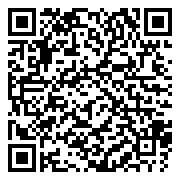Introduction
The telecommunications sector is one of the most dynamic and rapidly evolving industries globally. With the rise of 5G, IoT, satellite communications, and digital platforms, effective telecom regulation is more critical than ever. Regulation ensures fair competition policies, promotes innovation, protects consumer rights, manages scarce resources like spectrum, and drives sustainable sector growth.
This comprehensive course provides participants with the tools to understand, analyze, and apply regulatory frameworks in telecommunications. By combining theory with global case studies and practical workshops, participants will gain valuable insights into licensing, interconnection, tariff regulation, quality of service, cybersecurity, and spectrum management, all aligned with international standards and best practices.
Course Objectives
By the end of the Regulation in the Telecommunications Sector course, participants will be able to:
- Understand the principles, objectives, and scope of telecom regulation.
- Analyze national and international regulatory frameworks.
- Evaluate competition policies and market liberalization strategies.
- Explore regulatory issues in licensing, interconnection, and spectrum management.
- Assess consumer protection measures and quality-of-service (QoS) requirements.
- Examine the regulatory impact of emerging technologies such as 5G, IoT, satellites, and digital platforms.
- Apply practical tools for policy analysis and regulatory decision-making.
Course Outlines
Day 1: Foundations of Telecommunications Regulation
- Introduction to the telecom sector and its evolution.
- Objectives and scope of telecom regulation.
- Key stakeholders: governments, regulators, operators, and consumers.
- International standards and ITU frameworks.
Day 2: Legal and Institutional Frameworks
- Laws vs. sector-specific telecom regulations.
- Establishing independent regulatory authorities.
- Policy vs. regulation vs. legislation.
- Case study: Comparing global regulatory models.
Day 3: Licensing and Market Entry
- Licensing regimes and authorization frameworks.
- Universal service obligations.
- Mobile and fixed-line licensing.
- Market liberalization and privatization.
Day 4: Competition and Market Regulation
- Promoting fair competition policies.
- Anti-monopoly and anti-collusion measures.
- Interconnection and access regulation.
- Case study: Competition in mobile markets.
Day 5: Spectrum Management
- Spectrum allocation and assignment.
- Auctions and spectrum trading.
- Efficient use of spectrum resources.
- 5G and future spectrum challenges.
Day 6: Tariff Regulation and Interconnection
- Cost-based pricing and tariff models.
- Interconnection agreements between operators.
- Roaming regulation and fair practices.
- Benchmarking regional tariff models.
Day 7: Consumer Protection and Quality of Service
- Defining quality-of-service (QoS) standards.
- Consumer protection rights and obligations.
- Data protection and privacy issues.
- Mechanisms for complaint handling.
Day 8: Emerging Technologies and Regulatory Challenges
- Regulation of 5G, IoT, and satellite services.
- Over-the-top (OTT) platforms and internet services.
- Cybersecurity in telecom regulation.
- Case study: Regulating digital platforms.
Day 9: Regional and International Cooperation
- ITU and WTO frameworks in telecom regulation.
- Regional cooperation (EU, GCC, AU).
- Harmonization of telecom policies across borders.
- Global best practices.
Day 10: Practical Workshop & Simulation
- Group exercise: Designing a telecom regulatory framework.
- Simulation: Balancing competition, innovation, and consumer protection.
- Lessons learned and action planning.
- Closing session and certification.
Why Attend this Course: Wins & Losses!
- Gain comprehensive knowledge of telecom regulation and global best practices.
- Understand and apply competition policies to ensure fair market conditions.
- Develop practical expertise in spectrum management and allocation methods.
- Learn effective strategies for consumer protection and quality-of-service enforcement.
- Master regulatory aspects of licensing, interconnection, and tariff regulation.
- Analyze the impact of emerging technologies like 5G and IoT on regulation.
- Acquire practical tools for policy analysis and regulatory decision-making.
- Build confidence in addressing cybersecurity, OTT regulation, and cross-border cooperation.
Conclusion
The Regulation in the Telecommunications Sector program offers a complete overview of how modern telecommunications markets are shaped by policy, regulation, and technology. Covering everything from spectrum management and licensing to consumer protection, competition, and emerging technologies, this course equips participants with the knowledge and tools to design and implement effective telecom regulation.
In an industry where change is constant, mastering regulatory frameworks is no longer optional — it is essential for ensuring fair competition, protecting consumers, and fostering innovation in the telecommunications sector.


